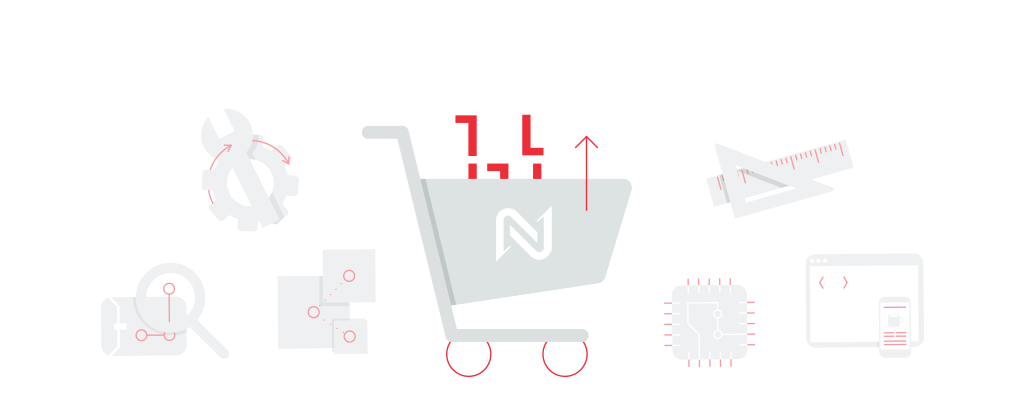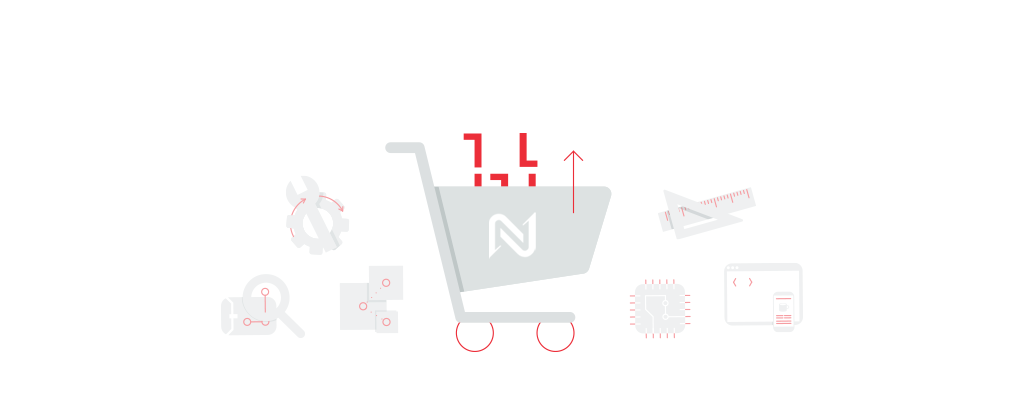Black Friday is over, and the sales records have been submitted. While some companies are counting their high revenue, others face criticism from consumers who feel duped and disappointed. What is the cause? What lessons can businesses learn in time for the Christmas sales?
Shopping madness
Black Friday is no longer limited to the USA, and is now a global sales event. This shopping craze reached Poland and is used as an opportunity for consumers to beat the Christmas present shopping rush. According to “Rzeczpospolita”, Polish consumer spending will be over 2.3 billion PLN (Polish zloty) on Black Friday. However, instead of heading to the malls, Poles are internet consumers who hunt for special offers online. What does this mean for ecommerce business owners?
The golden age of eCommerce
47% of Black Friday sales in Poland are made online, with an additional 44% of consumers shopping in both traditional and internet stores, as reported by Eactive. As clearly presented in the data, eCommerce generates the largest number of sales during this period.
Black Friday is a golden opportunity for online shops, and the perfect time to attract new customers and increase revenue. However, it requires a good eCommerce platform to prepare for the rush. Otherwise, if the platform can’t deal with the traffic, the consumers won’t return, and the shop might fail.
The fragility of technology
Not all companies relish in the fast-paced sales environment and, instead of increasing their revenue, often end up with an inbox full of complaints from dissatisfied customers. Why? Whilst many stores and sales network focus on a good-looking front-end website, they often misunderstand the importance of a good eCommerce platform.
What’s the effect? Websites that hang, or time out. Servers that overload. 404. We’ve seen it before. Just last year, two of the largest electronic and household product retailers, as well as a leading mobile phone operator, suffered this exact problem. Often, the sales strategy isn’t implemented into all the platforms, so discounts and offers appear at different prices on different channels. These discrepancies are lapped up by the consumer, who mock the companies on social media. However, this is not always a mistake.
The same product, but a different price. Why?
Consumer personalisation and segmentation are tools used by leading eCommerce platforms, which allows special offers to be tailored to each customer’s needs. How does this effect product prices? Well, this means different people see different prices, but for the same product.
By analysing the path the consumer took, such as a price comparison website or a promotional banner, the eCommerce platform calculates the discount for that particular customer. This form of personalisation is a common pricing policy for Polish online stores. In some web shops, prices are tailored to the customer depending on their location, loyalty programs, and even birthdays.
Different prices for the same product may also result from several parallel promotions, so it is very important to be able to synchronise prices with a specific advertising campaign and efficiently manage prices in real-time
Petar Tahchiev
CEO of Nemesis Software
B2B and B2C eCommerce platform
eCommerce solutions
Black Friday may be behind us, but it the Christmas sales are still to come. How can businesses prepare themselves to cash in on the next wave of shopping madness? Dedicated eCommerce platforms seem to be the solution of choice by more and more businesses.
However, many online business owners are still unconvinced. This is usually because their platforms operate sufficiently during regular trading times. If it’s not broken, why fix it, right? Wrong. These platforms aren’t equipped to deal with the growing scale of consumer eCommerce demands. By overestimating technology, and underestimating people, companies will be left short as their platforms crash in the rush of offer hungry consumers.
So how can businesses truly find the right platform, at the right time, with the right price?
The scale of the Internet should be taken into account, especially during sales periods when traffic has exponentially increased. The best solutions are those that can be easily adapted to the needs of each business, at every stage of its development. The right platform should provide flexible features and, most importantly, automatic scaling to adapt to website traffic. Antologic is proud to implement Nemesis, a platform that ensures store stability that can handle all orders with ease, and style.
Bartosz Forysiak
CEO Antologic
Partner of Nemesis
To read the press release in Polish, articles can be found here:
Author: Krzysztof Ryk




